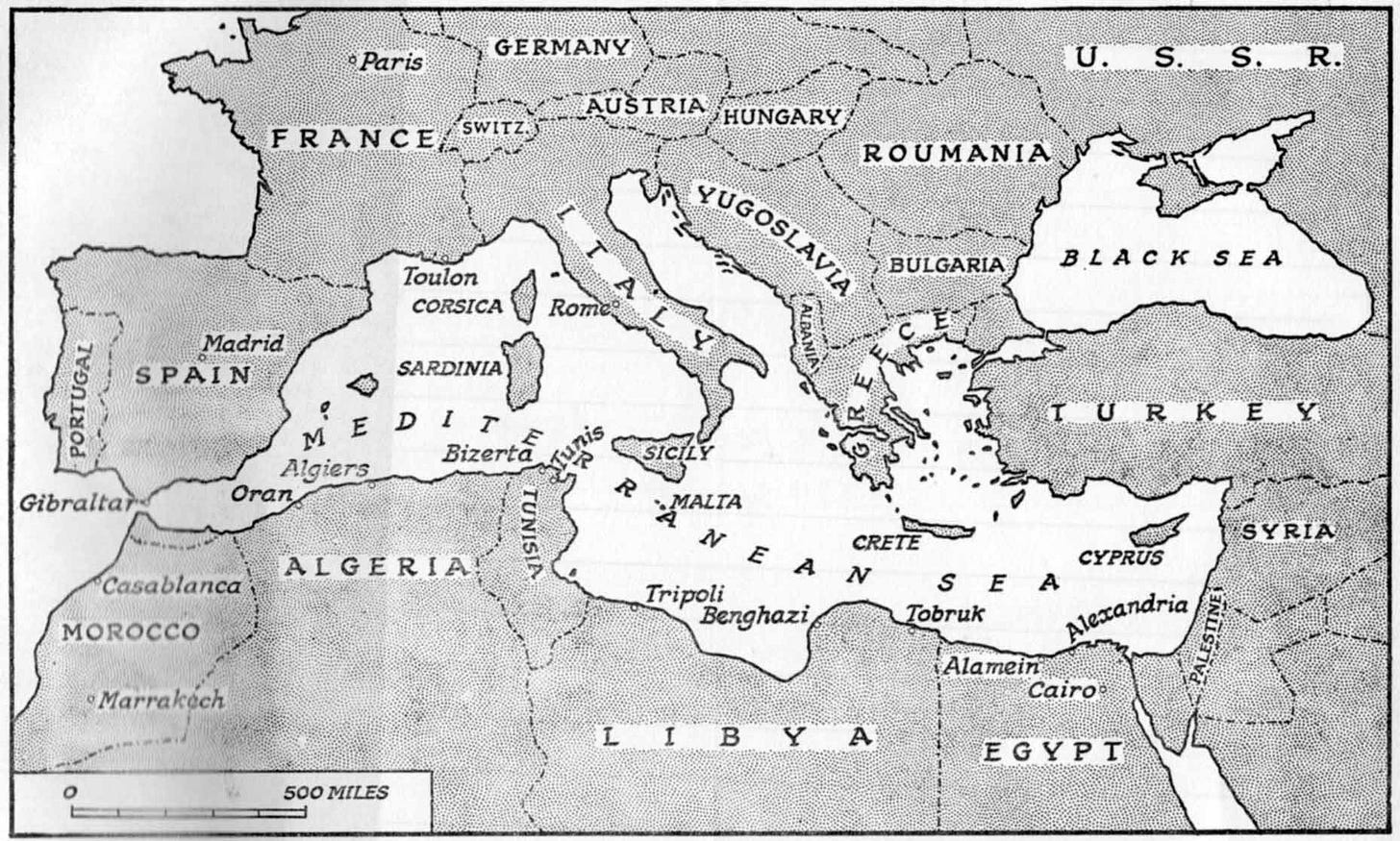Churchill and Roosevelt meet at Casablanca
14th January 1943: The future direction of the war becomes the subject of heated discussion between the "Combined Chiefs of Staff"
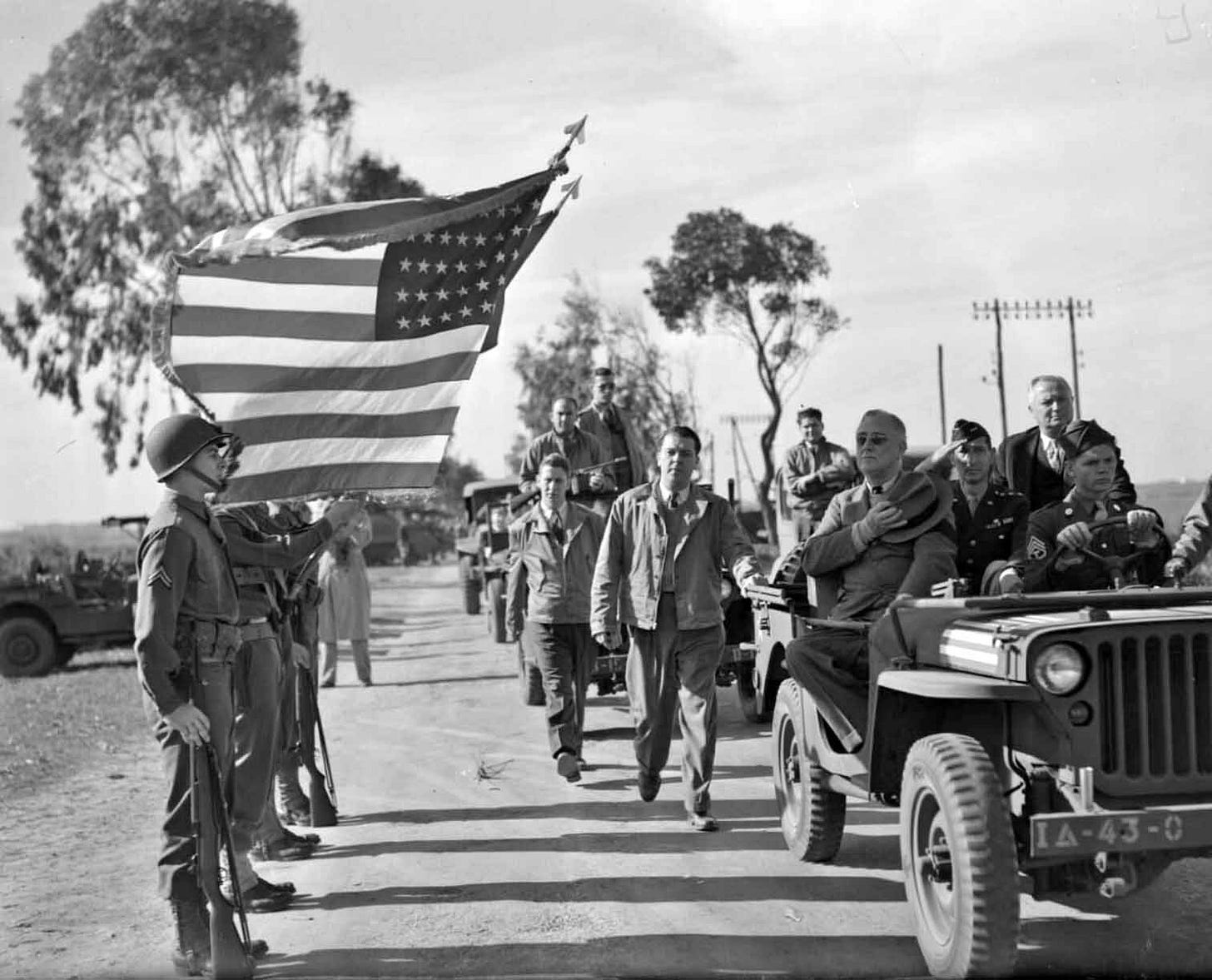
On the 14th January, the British and Americans met for a conference on war strategy in Casablanca, North Africa. There was much to discuss. In principle, there was agreement on the policy of 'Germany first', although there were those in the American party who were not wholly signed up for this. There was also a divergence of views about where next to attack Germany after North Africa, with the Americans still favouring an invasion of France later in 1943.
The Combined Chiefs of Staff meant the heads of the military professions from Britain and the U.S.A.. So this was a meeting of some very strong-minded individuals. Their job was to thrash out the future progress of the war. There were some fairly stormy meetings ahead.
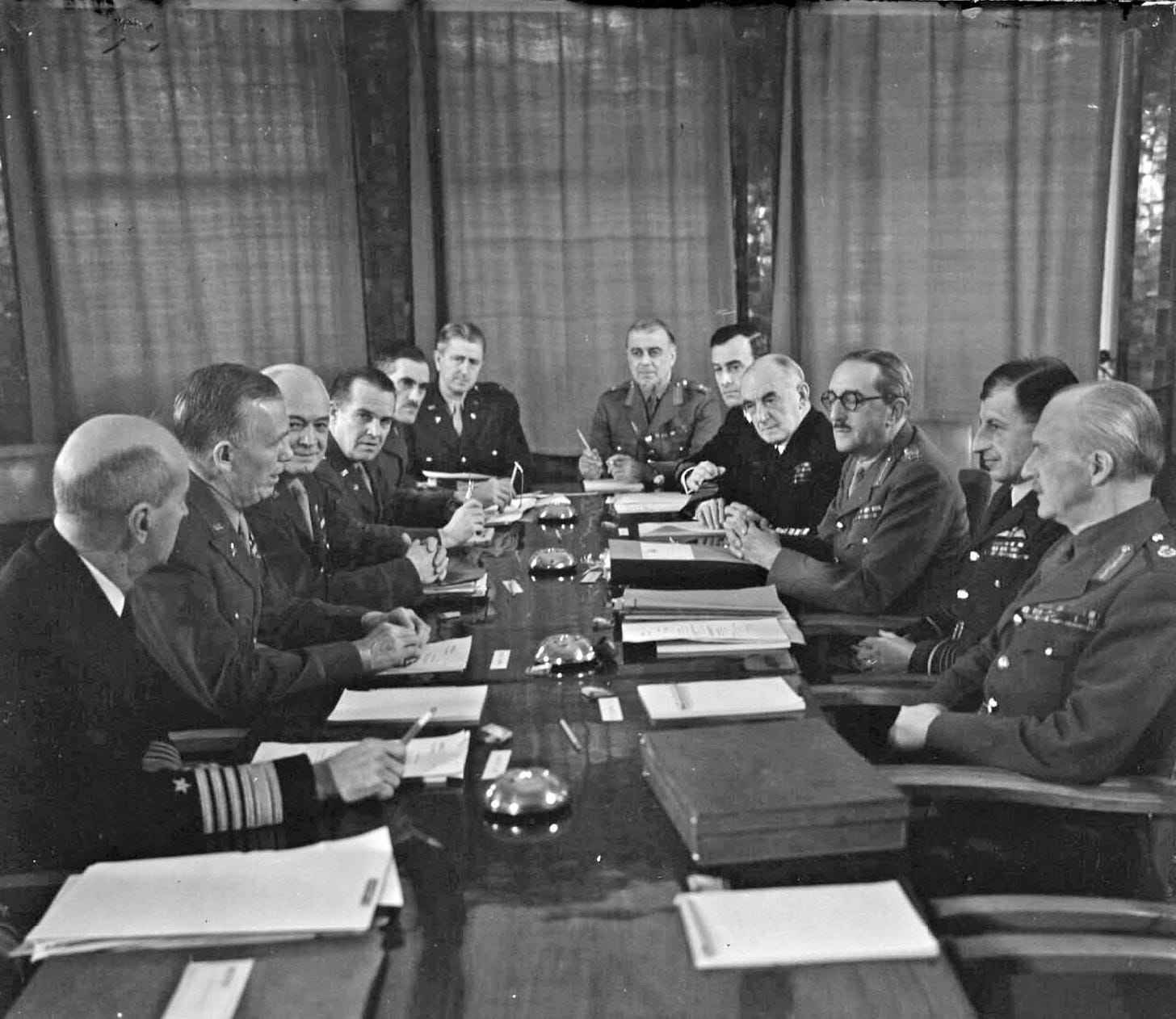
Amongst those present keeping a diary was Sir Alan Brooke1, the British Chief of the Imperial General Staff. His candid account of events was not published until long after the war:
14 January (2 am)
A very long and laborious day. Breakfast at 8.30 am followed by one and a half hour’s hard work preparing my opening statement for our first meeting with the American Chiefs of Staff.
At 10.30 we met. I started off with a statement of about one hour giving our outlook on the present war situation and our opinion as to the future policy we should adopt. Marshall then followed on with a statement showing where they disagreed with our policy.
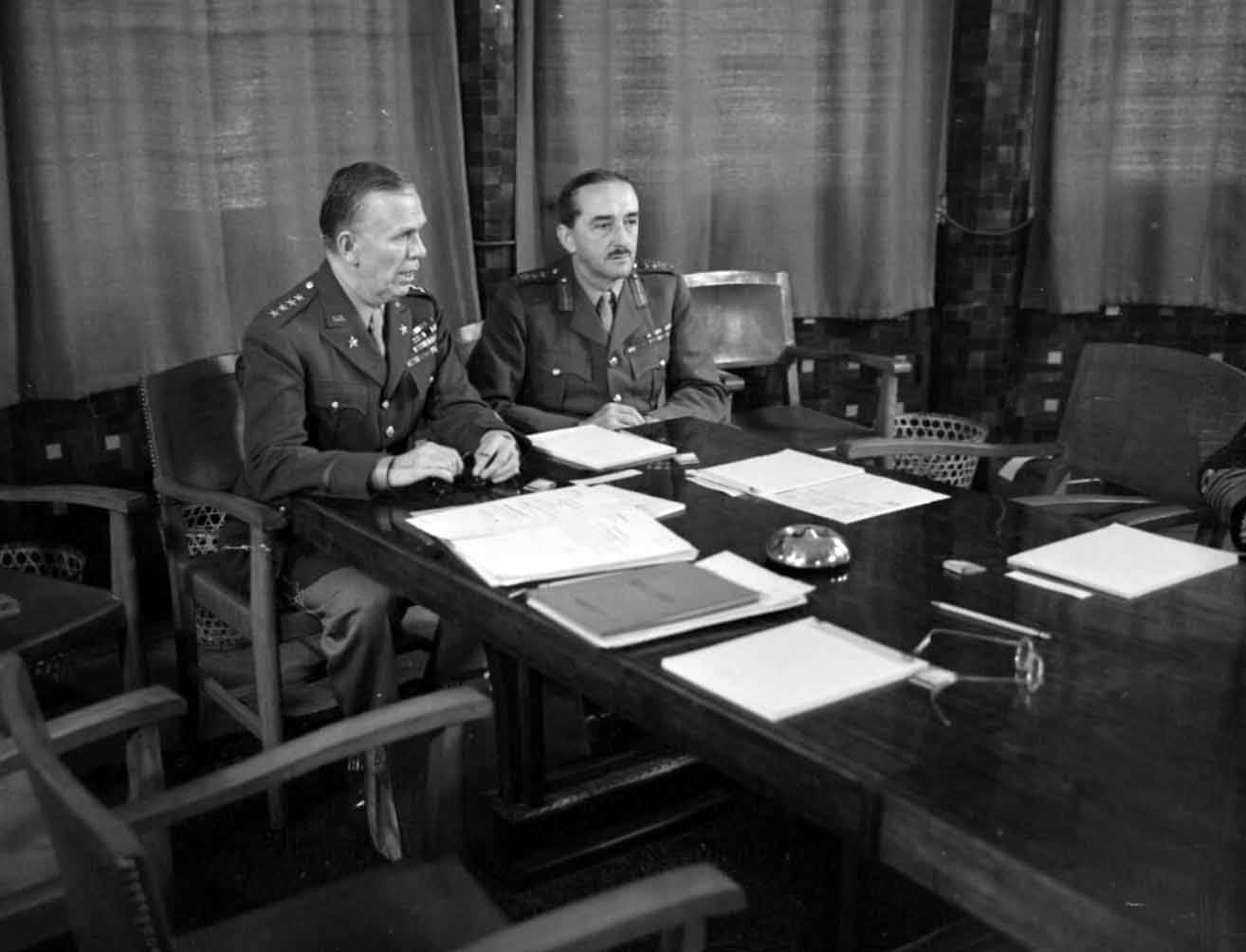
We stopped for lunch and met again at 2.30 pm. I then asked them to explain their views as to the running of the Pacific War. Admiral King then did so, and it became clear at once that his idea was an ‘all-out' war against Japan instead of holding operations.
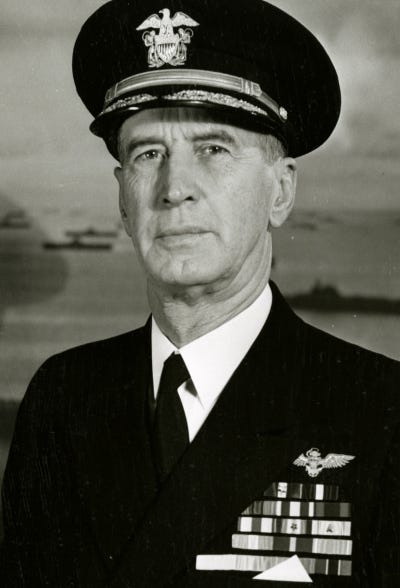
Admiral Ernest J. King … “tough as nails and carried himself as stiffly as a poker. He was blunt and stand-offish, almost to the point of rudeness. At the start, he was intolerant and suspicious of all things British, especially the Royal Navy; but he was almost equally intolerant and suspicious of the American Army. War against Japan was the problem to which he had devoted the study of a lifetime, and he resented the idea of American resources being used for any other purpose than to destroy the Japanese.”
From: The Memoirs of General the Lord Ismay, Chief of Staff to Winston Churchill
He then proposed that 30 per cent of the war effort should be directed to the Pacific and 70 per cent to the rest. We pointed out that this was hardly a scientific way of approaching war strategy!
After considerable argument we got them to agree to our detailing the Combined Planners to examine and report on the minimum holding operations required in the Pacific and forces necessary for that action.
We broke up the meeting at about 5 pm, had tea, and then had a meeting with our joint Planners to instruct them on the line of action to take.
I then went for a walk with John Kennedy to the beach to look for birds. Returned to find invitation to dine with the President who had arrived that afternoon.
Party consisted of PM, President, Harry Hopkins, Harriman, Elliot Roosevelt, Marshall, King, Arnold, Dudley Pound, Portal, Mountbatten and self.
King became nicely lit up towards the end of the evening. As a result he got more and more pompous, and with a thick voice and many gesticulations explained to the President the best way to organize the Political French organization for control of North Africa!
This led to many arguments with PM who failed to appreciate fully the condition King was in! Most amusing to watch.
At about 1.30 am an alarm was received, lights were put out, and we sat around the table with faces lit by 6 candles. The PM and President in that light and surroundings would have made a wonderful picture.
Churchill later wrote that ‘the differences did not run along national lines’. Logistics were crucial to determining Allied policy. George C. Marshall had long pencilled in the invasion of France for the 1st April 1943 - but it was rapidly becoming clear that this would not be practicable. Shipping capacity and the number of available landing ships and landing craft would prove to be constraining factors for the future of the war in Europe.
Churchill and Roosevelt were in agreement that “the supreme object is for the British and Americans to engage the enemy with the largest numbers in the shortest time”. So attention turned to enlarging the Mediterranean war, after the Germans had been cleared out of Africa.


